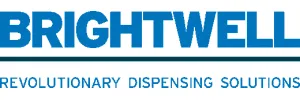News & Insights
Read the latest news from us and our clients across the globe

Posted on 26 November 2014 by adtrak.admin
Putting the clean into green
New regulations regarding the separate collection of waste come into force from January 2015. Carl Robinson, marketing manager of contract cleaning specialist, Nviro, outlines the changes, and suggests how cleaning companies can help organisations comply.

Re-using materials is an idea that’s as old as time itself. Industrious and thrifty individuals have been doing this for centuries, a great 20th century example being the ‘Make do and Mend’ campaign during World War Two. The rise in popularity of ‘vintage’ clothing is one of the latest manifestations of this movement, as well as the notion of ‘upcycling’. However, I wager that not many people could have predicted that recycling would become so ingrained in our everyday lives – mainly through the transformation of our waste collections.
The days of the simple, round, lidded dustbin are long gone – replaced by various receptacles, including bins for garden waste and recyclable materials. The ways that local authorities organise their waste and recycling collections vary greatly from county to county, and co-mingled collections – where various recyclable items, such as paper, plastics and cans share one single bin – have proved popular. However, it will be interesting to see if it remains widely-used after new waste regulations come into force from January 2015.
In its briefing note on the separate collection of recyclables, the Environment Agency states that the regulations, which will require the ‘separate collection’ of paper, plastic, metals and glass for recycling, aim to increase the quality of recycled material by reducing contamination. It continues: “The revised Waste Framework Directive requires the UK to take measures to promote high quality recycling. This includes a specific requirement, by 1st January 2015, to set up separate collections of paper, plastic, metal and glass as a minimum. Collectors of these wastes must collect these materials separately, unless it is not necessary to provide high quality recyclates; or unless it is not technically, environmentally or economically practicable (TEEP).
“The regulations specify that mixed dry recyclables must be collected separately, not co-mingled, and they must not be re-mixed later. Co-mingling will only be permissible after 2015 where it provides high quality recyclates or where separate collection is not practicable.”
Cleaning services could help compliance
Environmental sustainability is increasingly important to the majority of companies in the UK, and around the world. Organisations on every continent are keen to minimise the impact their activities have on the environment, and are investigating the many ways in which they can do this. This could include reducing water and energy usage, carbon emissions, and cutting the amount of waste that they send to landfill. They are also looking to procure products and services that can enhance their environmentally friendly approach – and this is where cleaning contractors can play an important role.
We have seen an increase in clients wanting us to help them introduce sustainable cleaning solutions – and one approach we have pioneered is chemical free cleaning, making use of microfibre cloths and mops, and special floor cleaning pads. The introduction of chemical-free cleaning can be difficult within any cleaning contract; mainly because it’s a common misconception that if you can’t smell disinfectant, then an area isn’t clean. However, once these barriers are broken down you can begin to help people understand the processes and how new products and methods work.
The convergence of the cleaning, FM and waste management industries also offers other new opportunities. As individual contractors from these different sectors start to work closer together, ways to share services or overlap in some way are becoming more of a possibility. For cleaning operatives, who are ‘on the ground’, this could include the separation of general and recyclable waste at source, which increases the recyclable element of all waste and reduces costs. Instead of the traditional bin emptying duties, where all ‘waste’, regardless of the material, is bagged up together and disposed of, a more enlightened approach can be taken. Cleaning contractors can really make a difference here, by advising on the siting of bins, and also ensuring that materials are separated before they are taken away.
In a world where we are trying to change attitudes about ‘waste’, cleaning contractors can play a major role in helping organisations to achieve their ‘green’ aims, and comply with the relevant regulations.
Published in Building & Facilities Management – October 2014
Experts in Public Relations Services & Communications Management
Our ServicesGenuine industry specialists in cleaning and hygiene, environmental and recycling, and facilities management
Our Sectors












